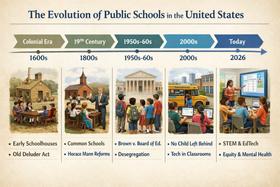Kake High School serves 65 students in grades 9-12.
The student-teacher ratio of 13:1 was lower than the Alaska state level of 15:1.
Minority enrollment was 88% of the student body (majority American Indian), which was higher than the Alaska state average of 53% (majority American Indian).
School Overview
Grades Offered
Grades 9-12
Total Students
65 students
Total Classroom Teachers
5 teachers
School Rankings
Student-Teacher Ratio
13:1
15:1
American Indian
88%
22%
Asian
n/a
5%
Hispanic
n/a
8%
Black
n/a
2%
White
12%
47%
Hawaiian
n/a
3%
Two or more races
n/a
13%
All Ethnic Groups
Eligible for Free Lunch
48%
37%
Eligible for Reduced Lunch
18%
3%
School Statewide Testing
School District Name
Source: National Center for Education Statistics (NCES), AK Dept. of Education
Frequently Asked Questions
How many students attend Kake High School?
65 students attend Kake High School.
What is the racial composition of the student body?
88% of Kake High School students are American Indian, and 12% of students are White.
What is the student-teacher ratio of Kake High School?
Kake High School has a student ration of 13:1, which is lower than the Alaska state average of 15:1.
What grades does Kake High School offer ?
Kake High School offers enrollment in grades 9-12
What school district is Kake High School part of?
Kake High School is part of Kake City School District.
Recent Articles

Do We Still Need Libraries in Public Schools in 2026
An updated look at the role of public school libraries in 2026, their impact on literacy, equity, and digital learning, and why they remain essential today.

The History of Public Schools in the United States
Explore the history of public schools in the U.S., from colonial roots to 2026 reforms shaping equity, funding, and classroom innovation.

Special-Program Registration Deadlines Explained
Learn what to know about special-program registration deadlines for magnet, CTE, and dual-enrollment options in public schools.





